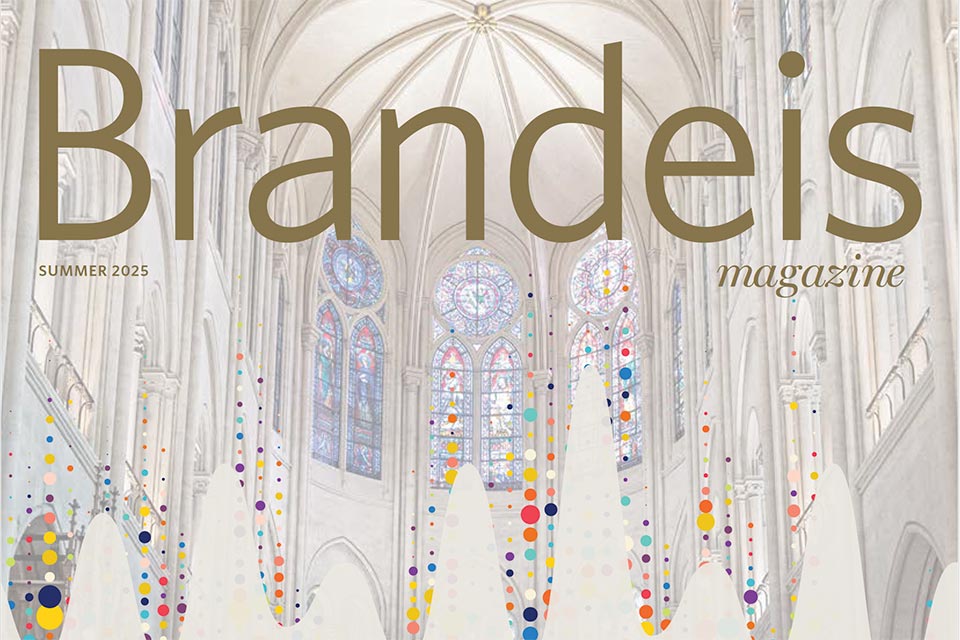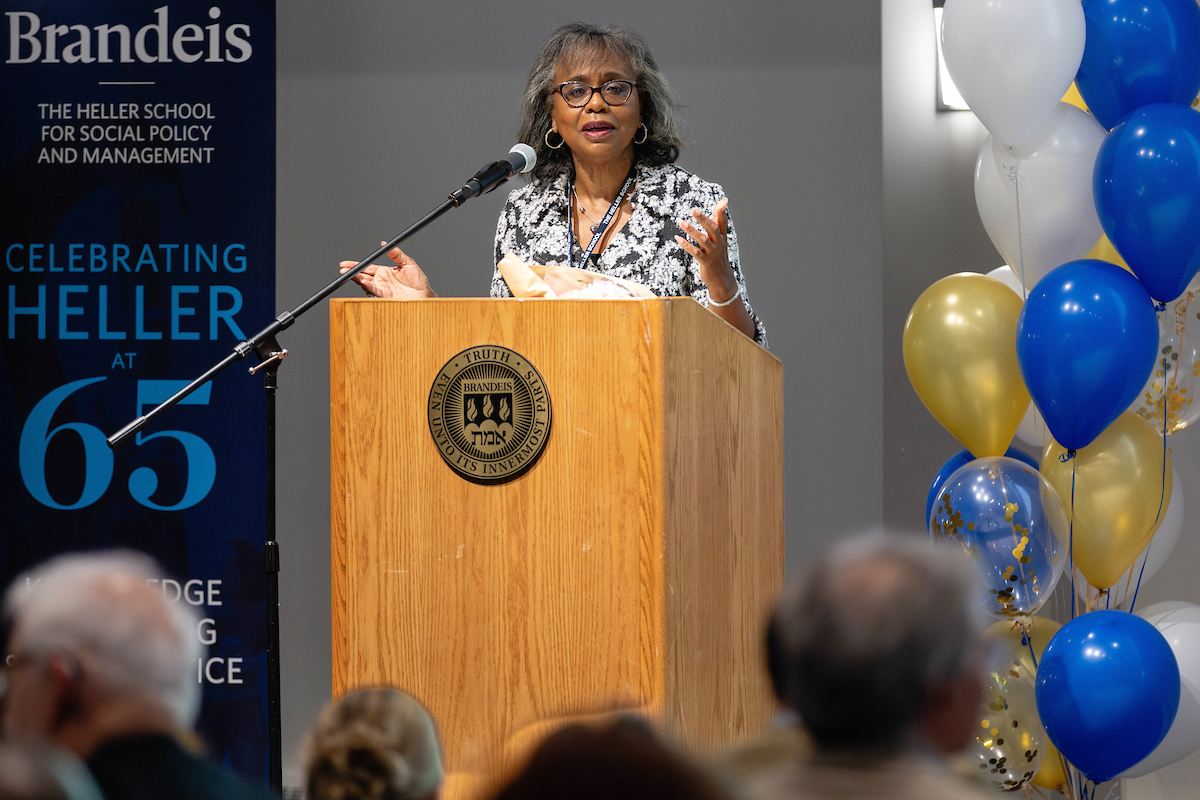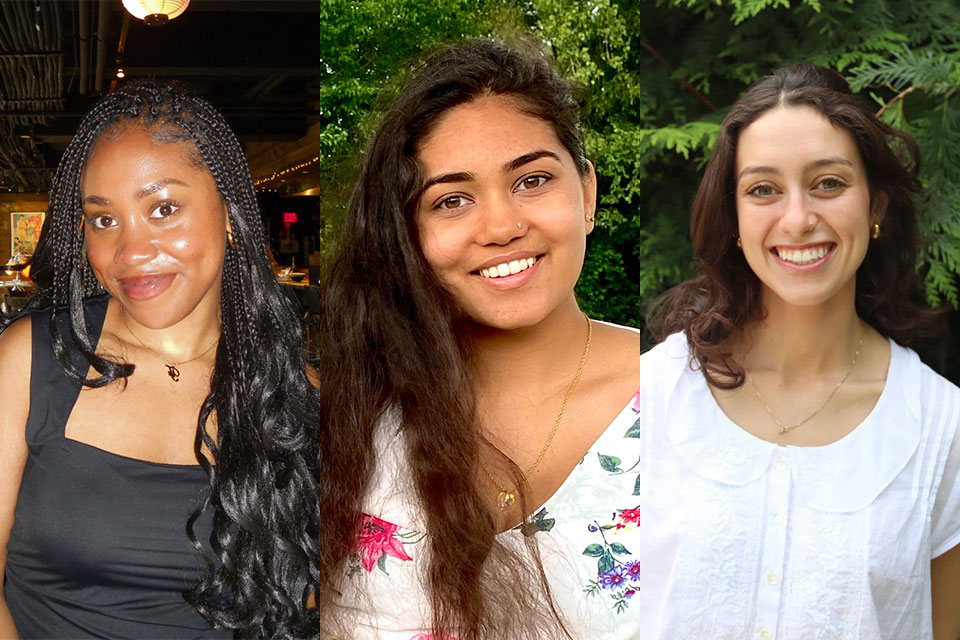Robin Wall Kimmerer: Recipient of the 2024 Richman Distinguished Fellowship in Public Life
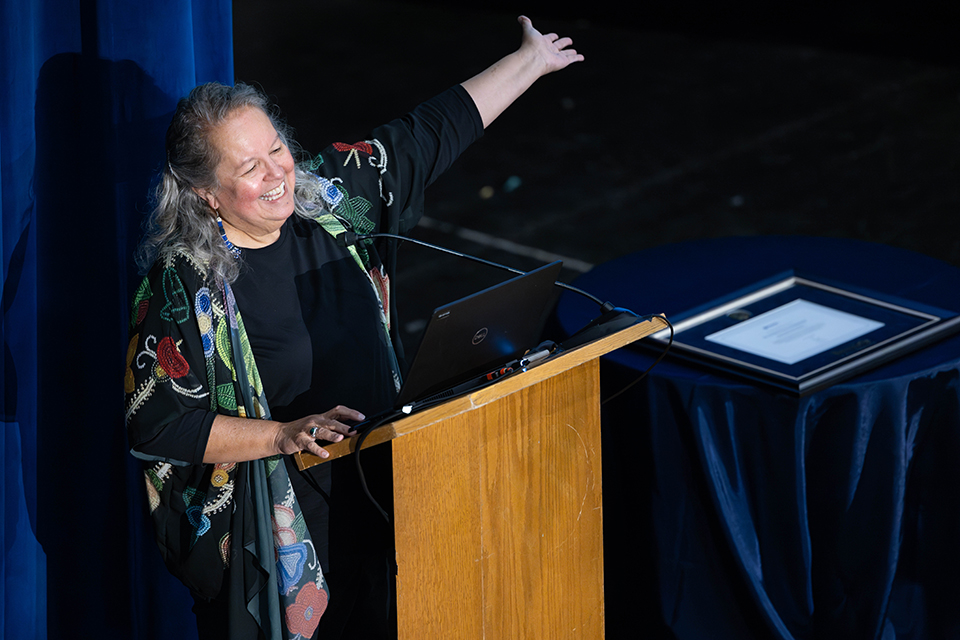
Photo Credit: Dan Holmes
By Kennedy Ryan
February 29, 2024
“Most of us find ourselves embedded in an economy that asks what more we can take, rather than ‘what can we give?’ That has us hanging on the precipice of biodiversity loss and climate catastrophe,” said celebrated ecologist, educator, and author Robin Wall Kimmerer, the recipient of the 2024 Richman Distinguished Fellowship in Public Life.
The fellowship was created by Brandeis alumna Carol Richman Saivetz ’69, along with her children, Michael Saivetz ’97 and Aliza Saivetz Glasser ’01, in honor of Carol’s parents, Fred and Rita Richman.
The award is funded by the generosity of the Richman and Saivetz families and hosted by COMPACT on behalf of the Office of the President and Office of the Provost. Kimmerer was in residence on campus on February 28 and 29. The Richman award ceremony and presentation was held on Feb. 28 and attended by more than 400 audience members from Brandeis, Wellesley College, Tufts University, and elementary schools from across the Boston area.
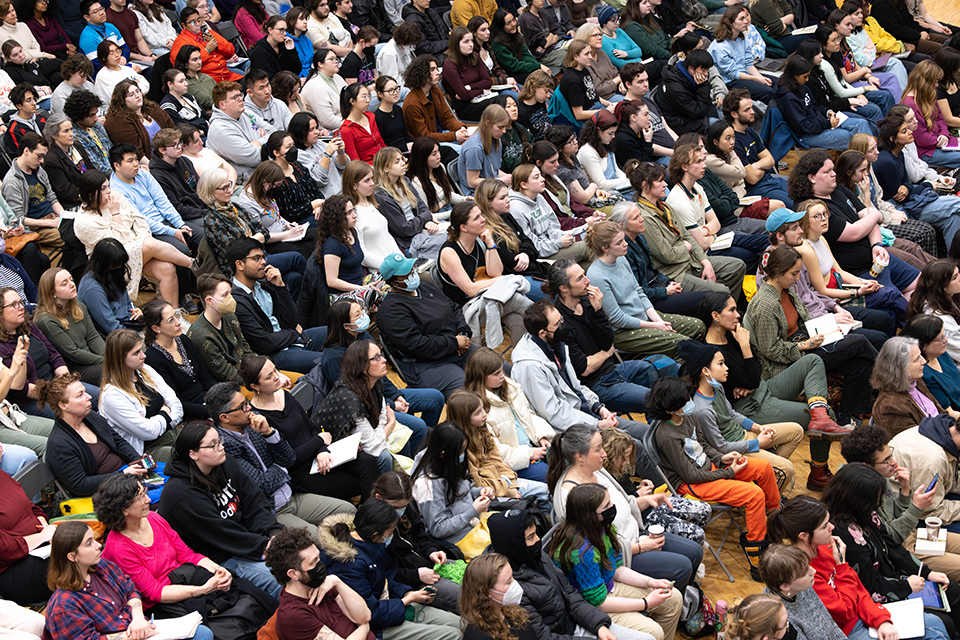
Kimmerer is a mother, scientist, decorated professor, and enrolled member of the Citizen Potawatomi Nation. She is a SUNY Distinguished Teaching Professor of Environmental Biology, and the founder and director of the Center for Native Peoples and the Environment.
She is the author of the critically acclaimed “Braiding Sweetgrass: Indigenous Wisdom, Scientific Knowledge and the Teachings of Plants,” and “Gathering Moss: A Natural and Cultural History of Mosses,” which was awarded the John Burroughs Medal for outstanding nature writing in 2005.
She was nominated by Associate Professor of Biology and Environmental Studies, Colleen Hitchcock. In her nomination, Hitchcock said that Kimmerer's selection would be a fitting following act to Brandeis’ Year of Climate Action. Her nomination received broad faculty support across disciplines in the sciences and humanities.
Kimmer spent her keynote sharing the importance of gratitude for Mother Earth.
“When we put our feet on Mother Earth this morning, we had everything we needed. A breath of fresh air, cool water, trees, clouds, and one another. We have the privilege to be learners in this life,” said Kimmer. “We need to live in such a way that the Earth will be grateful for us.”
As a writer and a scientist, her interests in restoration include not only restoration of ecological communities, but restoration of relationships to land. Referencing passages from her book, “Braiding Sweetgrass,” she emphasized the importance of perspective on the land. Rather than seeing the land as property and possession, she urged audience members to see the land as identity and a moral responsibility.
“It’s not enough to conserve the remnants. We need to heal the damage that we have done in a very active way,” said Kimmer. “When we objectify the world it sets the Earth and its living beings outside of our moral responsibility.”
